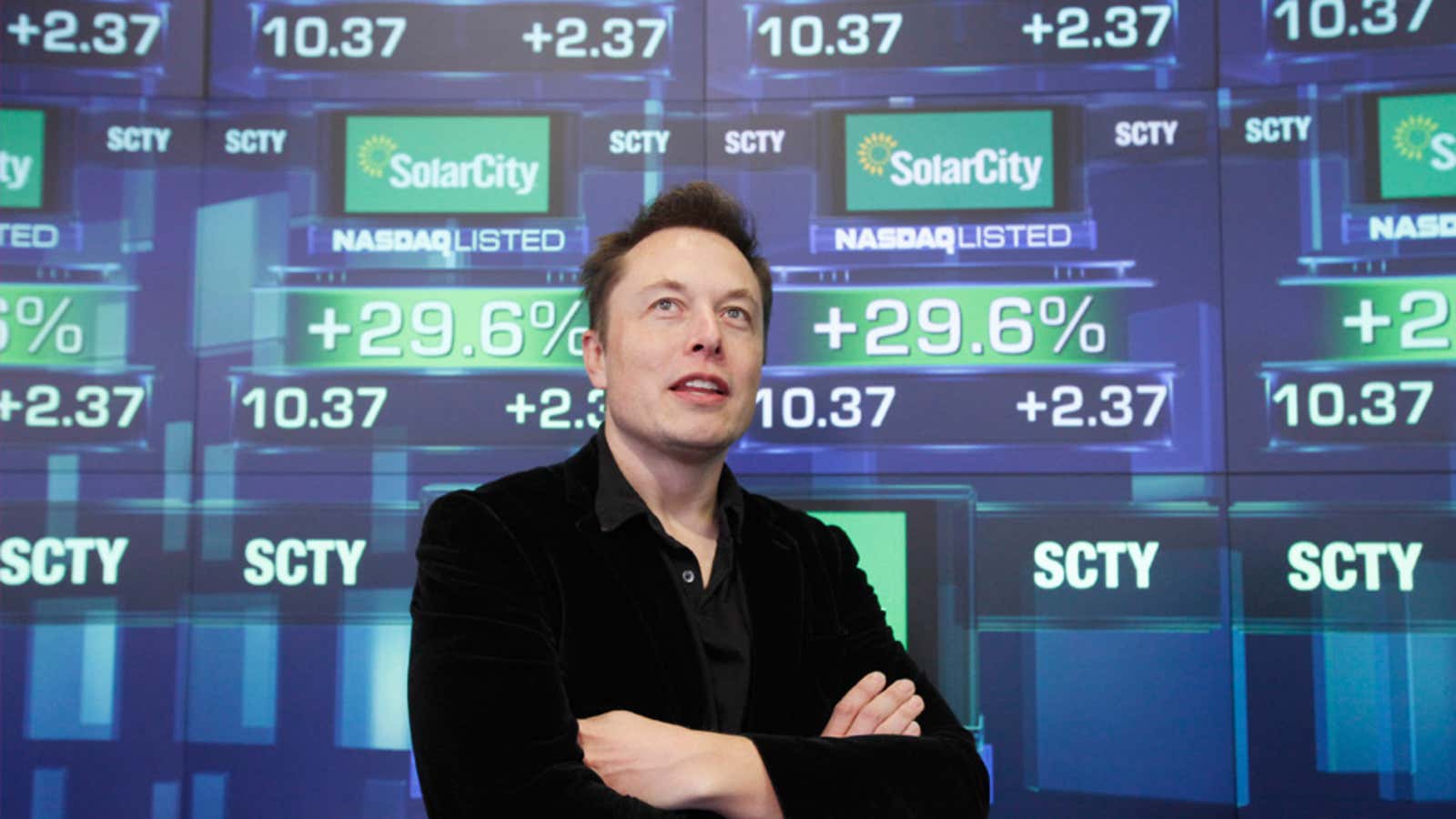Tesla CEO Elon Musk sent Twitter into overdrive (pun intended) today. The hashtag #TeslaNewProductGuesses was active on the social network after Musk revealed that the company will unveil a new product at the end of April.
Tesla is not commenting on the product announcement, and also declined to comment to Quartz for this piece.
Our best guess? It is probably the battery that can be used to power a home, which Musk teased during last month’s quarterly earnings call. At the time, he said: “We’re trying to figure out a date to have the product unveiling, but it’s probably in the next month or two months. And it’s really great; I’m really excited about it.”
Musk has a Steve Jobs-ian ability to build hype for his products, and for his company. And indeed, his tweet appears to have delivered a boost to the Tesla share price. The stock is up by as much as 3% today, and before the tweet, was trading in negative territory.
Just a few days ago, Musk denied any intention to goose the stock price with his tweets.
He is right of course. But just because it’s not intentional, that doesn’t mean his tweets aren’t having an effect. Musk has tweeted about Tesla at least three times during normal market hours in the US this year.
- Today’s tweet coincided with a rise of up to 3% in the stock price.
- On the day of the aforementioned denial of the notion that his tweets are designed to affect the stock price, March 16, the stock increased 3.7%.
- A January 29 tweet about over-the-air updates that would make Tesla’s souped-up Model S P85D even faster. On that day, Tesla shares increased 2.9%.
We are not suggesting anything untoward here—Twitter is a completely public forum, after all, and one that any investor worth his or her salt is paying attention to. Nor are we saying there’s a definite causal link between Musk’s tweets and the share price reaction on those days (lots of other company specific and macro factors could have affected things). And not all of his tweets have helped the stock. For example, Musk tweeted on March 8, a Sunday, to firmly deny delays at the Gigafactory, the $5 billion battery plant being built in Nevada. The next day, Tesla stock still fell 1.5%.
So the fact that Musk’s tweets have on more than one occasion coincided with days when the stock price was strong probably reflects, more than anything, the fact that he likes to break news about his company on Twitter. Which—aside from his musings on artificial intelligence, the Hyperloop, and SpaceX—means he is probably worth following.
